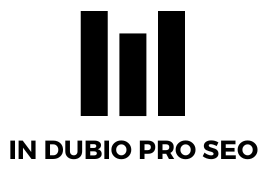September 2024 SEO Update
by Martin Bach
SEO Update: September 2024 – Key Changes and Trends
September 2024 brought significant updates in the ever-evolving world of SEO. As search engines continue to prioritize user experience, website performance, and authoritative content, businesses and SEO professionals must stay agile to maintain and improve their rankings. Here’s a breakdown of the key SEO changes and trends that emerged during this month.
1. Core Algorithm Update: September 2024
Google rolled out a core algorithm update in September, causing noticeable shifts in rankings across various sectors. These updates are designed to improve search results, often focusing on content quality, relevancy, and website performance. Websites with high-quality, authoritative content saw boosts, while those relying on outdated SEO tactics or low-value content faced drops. Key areas impacted include:
- Content Quality: Sites with deep, well-researched, and unique content performed better. Google emphasized the importance of expertise, authoritativeness, and trustworthiness (E-A-T).
- User Intent Matching: The update further refined Google's ability to understand user intent, rewarding pages that precisely meet the user’s needs and expectations.
- Technical SEO: Websites that were slow, had poor mobile experiences, or technical issues saw rankings drop significantly.
2. Increased Focus on User Experience (UX) Metrics
Google continues to enhance the role of user experience in its ranking algorithm. In September 2024, there was increased weight placed on Core Web Vitals (page load speed, interactivity, and visual stability). Sites that excelled in these areas were rewarded with better visibility in the SERPs.
- Largest Contentful Paint (LCP): Improving the time it takes for the largest element on a page to load is critical. Websites with an LCP under 2.5 seconds saw performance gains.
- First Input Delay (FID): Reducing the delay in a page’s interactivity is now a top priority.
- Cumulative Layout Shift (CLS): Websites with minimal layout shifts during page load (good CLS scores) are favored, especially on mobile devices.
3. AI-Generated Content and Google's Stance
With the rise of AI-generated content, Google has fine-tuned its algorithms to distinguish between human-created content and AI-generated material. While Google does not penalize all AI-generated content, there’s a clear preference for human oversight, fact-checking, and originality. In September, Google rolled out better detection mechanisms for low-quality AI content farms, leading to penalties for websites that rely heavily on mass-produced, low-value articles.
- Recommendation: If you're using AI tools, ensure that content is fact-checked, refined by human editors, and offers unique insights that align with the user’s intent.
4. Continued Emphasis on Entity-Based Search
Google’s entity-based search technology is growing stronger. In September, we saw a greater shift toward semantic search and topic clusters. Rather than ranking pages solely based on keyword matching, Google is now better at understanding entities and the relationships between them. Websites that offer a comprehensive view of a topic, supported by well-structured internal linking, are likely to perform better.
- Actionable Tip: Build content clusters around key topics. Link articles, blog posts, and guides to create a network of related content that demonstrates authority on a subject.
5. Local SEO: Google Business Profile Changes
For local businesses, September brought important updates to Google Business Profiles (GBP). Google introduced new features that allow businesses to highlight promotions, services, and updates more effectively. Additionally, Google enhanced the local pack ranking factors, putting more emphasis on:
- Proximity: Businesses closest to the searcher’s location continue to gain an advantage.
- Reputation and Reviews: Quality reviews and active management of GBP profiles were major ranking factors in local searches.
6. Video SEO: Rise in Importance
With the growing consumption of video content, Google’s algorithms have placed greater emphasis on video SEO. In September, websites that incorporate video content (especially if hosted on their domain) saw a noticeable rise in rankings, especially on mobile devices. Optimizing video metadata, transcriptions, and using structured data to mark up video content can improve discoverability.
- Tip: Ensure that videos are optimized for search by including transcripts, accurate titles, and descriptions. Use video schema to help Google understand and index video content properly.
7. Voice Search Optimization
While voice search has been growing for years, September saw renewed focus on optimizing for this technology. The shift towards natural language processing means that content optimized for voice search—such as FAQ sections and conversational content—performed better. The use of long-tail keywords and structured answers for common queries are key tactics.
8. Search Indexing API Enhancements
Google rolled out updates to its Search Indexing API, allowing websites with dynamic or constantly updated content (e.g., news websites, job boards) to have faster indexing and visibility. The new API enhancements in September allow for quicker reflection of changes, ensuring that new content gets indexed and ranked rapidly.
Conclusion
The September 2024 SEO updates reinforced the importance of providing high-quality, user-centric content, technical optimization, and staying on top of evolving trends like AI content, video SEO, and Core Web Vitals. For SEO professionals, the focus should remain on creating value for users, optimizing technical performance, and staying flexible in the face of ongoing algorithmic changes.
By staying proactive and aligning your strategy with these updates, businesses can continue to maintain or improve their search visibility in this competitive digital landscape.

Comments
Add a comment